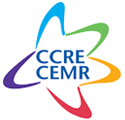
Croatia Unitary state
| CROATIA | / HISTORY |
History and trends
Croatia is a parliamentary Republic. Its Constitution entered into force on 21 December 1990.
Croatia struggled to gain independence in 1991, but stability has since been restored. The country lies in south-central Europe. Throughout its history, it has come under competing influences from the Roman, Venetian, Austro-Hungarian and Ottoman empires. Its unusual shape is the legacy of pressure on two fronts, from the Austro-Hungarian and Ottoman empires.
Since medieval times, Croatia has enjoyed periods of independence, interspersed with annexation by Hungary and then Austria, right up until World War I. In the 20th century, Croatia was part of Yugoslavia between 1918 and 1991 – first as a centralised kingdom under a Serbian monarchy and then, from 1945 onwards, as a six-republic communist federation under the rule of Josip Broz Tito.
Following the fall of the Berlin Wall in 1989, the first free elections were held. The ruling communist party was defeated, paving the way for democratisation. The federal government in Belgrade, keen to maintain its hold over the country, reacted to the elections by taking military action against Croatia. Consequently, Croatia exercised its prerogative under the Yugoslav constitution and declared independence. The international community recognised Croatia as an independent state in 1992. But the ensuing civil war claimed 15,000 lives, displaced hundreds of thousands of people and caused widespread destruction, and Croatia lost one-quarter of its territory.
According to article 4 of the Constitution, state power is limited by the constitutionally guaranteed right to local and regional self-government, as defined in chapter VI of the constitution. In addition, specific state powers are transferred to each level of local government (municipality, city, county) as governed by the local self-government act of 10 April 2001.
Local level :
Croatia has 428 municipalities. Typically, each encompasses several inhabited settlements (of which there are around 6,700 across the country). Each municipality has a maximum population of 30,000 people.
“City” status is allocated to the administrative centre of each županija, to conurbations with a population of more than 10,000 people and, in some exceptional cases, to cities that merit the status for historical, economic, urbanistic or other reasons. Towns and cities have the same status as municipalities.
Regional level :
Counties (županije) and cities with a population of more than 30,000 people have devolved powers across secondary and tertiary education, health, town planning and regional land-use planning, economic development, transport and transport infrastructure, and the development of regional medical, social and cultural networks.
Citizens are also entitled to participate in local government affairs through local referendums.
Counties are territories that share similar geographical, historical and economic traits. They were created for the purpose of encouraging coordinated regional development.
The capital city, Zagreb, is a separate county in its own right.
Similarly to the role played by the municipal council at the lower level, the county assembly (Županijska skupstina), elected for a term of four years, is the county’s representative assembly and has the power to rule on county affairs. Each assembly has an odd number of members (between 31 and 51). The assembly has a president (elected by its members) and two vice-presidents. At least once a quarter, the president (predsjednik Županijske skupstine) convenes, chairs and represents county assembly sessions. The president’s other powers are determined by the county assembly.
The county assembly has the following powers:
- to approve the county’s status
- to vote on resolutions and to issue general acts concerning regional affairs
- to appoint and dismiss the župan, his/her deputies and county government department managers
- to set up county committees and appoint their members
- to determine the composition of county government departments and their powers.





